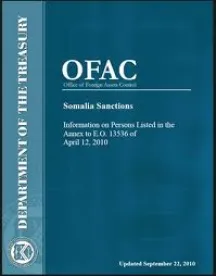On August 13, the U.S. Department of the Treasury’s Office of Foreign Assets Control (OFAC) issued “Revised Guidance on Entities Owned by Persons Whose Property and Interests in Property Are Blocked.” This guidance significantly changed OFAC’s so-called “50% rule.”[1]
The guidance introduces at least four policies that are further explained in newly issued OFAC Frequently Asked Questions (FAQs) #398–402, which can be found on OFAC’s FAQ website.
The New Policies
-
OFAC will henceforth aggregate the ownership interests of separate OFAC Specially Designated Nationals (SDNs) in any one entity, and, if the aggregated SDN ownership interests in such entity equal or exceed 50%, OFAC will deem the entity to be a “shadow” or “deemed” SDN. Thus, an entity that is not expressly named on OFAC’s SDN list may become a “deemed” SDN because of its collective SDN owners’ equity holdings and will be just as “off limits” to U.S. Persons as a named SDN. In the past, OFAC did not aggregate the ownership interests of separate SDNs. OFAC looked only to see if one SDN had 50% or more ownership in an entity.
Accordingly, if an SDN/Blocked Person X owns 25% of Entity A, and SDN/Blocked Person Y owns another 25% of Entity A, Entity A is considered blocked. This is because Entity A is owned 50% or more in the aggregate by one or more SDNs/blocked persons. For the purpose of calculating aggregate ownership, the ownership interests of SDNs/persons blocked under different OFAC sanctions programs are aggregated. See FAQ #399.
-
U.S. Persons may not engage in negotiations, enter into contracts, or “process transactions” involving a blocked individual, even when the blocked/SDN individual is acting on behalf of a nonblocked entity that he or she controls (e.g., a blocked/SDN individual is an executive of a nonblocked entity and is signing a contract on behalf of the nonblocked entity). This is because OFAC sanctions generally prohibit transactions involving, directly or indirectly, a blocked person, even if the blocked person is acting on behalf of a nonblocked entity. See FAQ #400. Note that “process transactions” is not defined.
-
U.S. Persons will require an OFAC license to dispose of property that such U.S. Persons had originally blocked because it was the property of an entity that was owned 50% or more by a blocked person when it came within the United States or within the possession or control of the U.S. person. Once property is properly blocked, it remains blocked, even if the blocked person’s ownership of the entity subsequently falls below 50%. This is because the blocked person is considered to have an interest in the blocked property, and OFAC does not recognize the unlicensed transfer of the blocked person’s interest after the property becomes blocked in the United States or in the possession or control of a U.S. person. Persons who hold such property must request authorization from OFAC’s Licensing Division to transfer or otherwise deal in that property (the application can be found on OFAC’s website). OFAC will evaluate such requests on a case-by-case basis. See FAQ #402.
-
U.S. Persons who wish to engage in dealings with entities that were previously blocked due to OFAC’s 50% rule but that are no longer blocked because of a divestment of ownership to less than 50% should conduct sufficient due diligence to determine that any purported divestment, in fact, occurred and that the transfer of ownership interests was not merely a sham transaction. See FAQ #402.
The FAQs have more details and include examples of how to compute aggregate SDN ownership to determine if it will make an entity a “shadow” SDN.
[1]. View the guidance at here.




 />i
/>i


